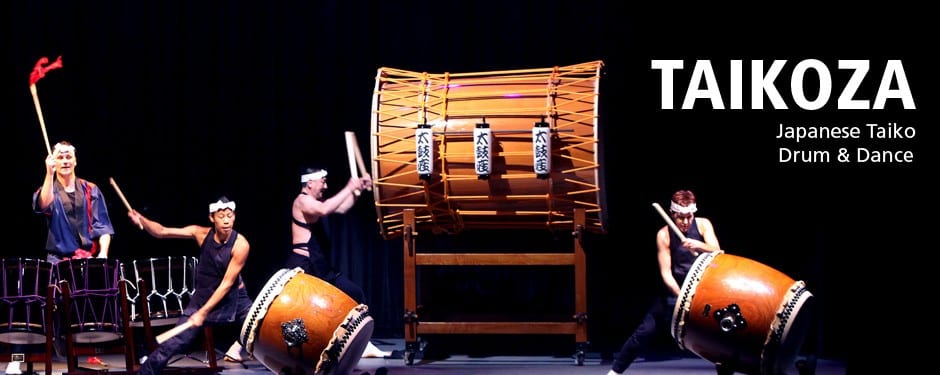Bio:
Marco Lienhard, artistic director Taikoza and of East Winds, Inc.
Marco Lienhard was a lead performer with ONDEKOZA for 18 years from 1981-1998. While touring as a professional taiko player in Japan, he mastered the shakuhachi under Master Katsuya Yokoyama, quickly becoming a virtuoso solo artist. Yokoyama invited him to perform to the First International Shakuhachi festival in Bisei, Okayama in Japan and then the tenth anniversary concert of the Festival. Marco Lienhard was invited to perform at four International Shakuhachi festivals that have been held around the world. He was invited annually to perform at the Meikyoku Kanshoukai concert series in Osaka. Lienhard also studied the fue and the Nohkan (Noh theater flute) with Masayuki Isso. Lienhard has performed more that 6000 concerts in Europe, Asia, and North America with appearances at some of the world’s most prestigious venues including Carnegie Hall, Lincoln Center, Madison Square Garden, Hammerstein Ballroom, Boston Symphony Hall, Osaka Castle Hall, Hong Kong Cultural Center and Suntory Hall in Tokyo and he has performed with the NYC Opera. Marco Lienhard also teaches internationally and in the last year has been teaching and performing in New Zealand, Australia, Russia, Japan, Italy, Switzerland, Brazil and Argentina.
In 1995, M. Lienhard founded the group Taikoza with which he has toured in Switzerland, Italy, Germany, France, Belarus, Georgia, Russia (Tchaikovsky Hall, Smetana Hall, Bolchoi Circus), Mexico and the US. Marco Lienhard is also the director and founder of East Winds Ensemble, a shakuhachi and koto ensemble based in New York that also performs internationally. Taikoza and East Winds Ensemble are part of a not for profit organization (East Winds, Inc.) based in New York that promotes Japanese music.
Lienhard has released many CDs to critical acclaim including Taikoza: Beginnings, which was nominated for best World music CD for the JPF awards. His First solo shakuhachi album became a best seller in Japan. He can be heard on the award winning (best score) Nintendo Wii game: Red Steel and Red Steel 2. Lienhard has also appeared on many TV program including the NBC Macys’ Thanksgiving parade, The Sumo tournament filmed at Madison Square Garden, ABC’s Regis and Kathie Lee, History Channel, ESPN, PBS and many more in Europe and Asia.

